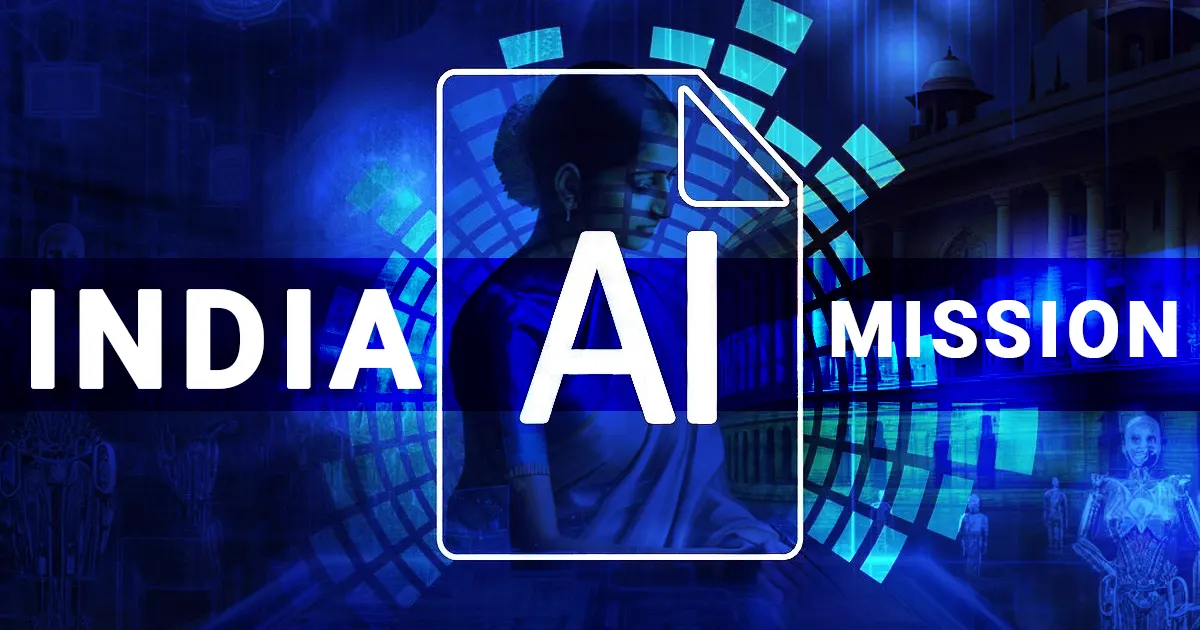GS2- GOVERNANCE

Under the Advisory Group’s guidance, chaired by the Principal Scientific Advisor, a Subcommittee on ‘AI Governance and Guidelines Development’ was formed to deliver actionable recommendations for AI governance in India. This initiative is part of the IndiaAI Mission, which aims to position India as a global leader in artificial intelligence while ensuring its responsible and ethical application.
IndiaAI Mission
Launched by the Indian government, the IndiaAI Mission is a strategic initiative with a financial outlay of ₹10,371.92 crore over five years. It focuses on building India’s AI capabilities to drive innovation, economic growth, and societal benefits. The mission emphasizes fostering innovation, creating a skilled AI workforce, and enabling a robust governance framework.
Key Objectives:
- Promote responsible AI research and development.
- Strengthen India’s global AI leadership.
- Create job opportunities in AI-related sectors.
- Ensure AI technologies are aligned with Indian societal and cultural contexts.
About AI Governance
AI governance refers to the processes, standards, and frameworks designed to ensure AI systems are safe, ethical, and fair while respecting human rights. This is crucial for mitigating risks such as bias, discrimination, and unintended consequences in AI applications.
Key Issues Highlighted by the Report
- Deepfakes and Malicious Content: Existing laws are insufficient for addressing the removal of harmful AI-generated content.
- Cybersecurity: Current cybersecurity laws need to adapt to evolving AI-related threats.
- Intellectual Property Rights (IPR): The use of copyrighted data by AI systems raises liability and infringement concerns.
- AI-led Bias and Discrimination: AI systems can perpetuate biases, complicating efforts to identify and mitigate discrimination.
Key Recommendations by the Advisory Group
- Inter-Ministerial AI Coordination Committee: Establish a committee involving MeitY, NITI Aayog, RBI, SEBI, and sectoral regulators to streamline AI governance across sectors.
- Technical Secretariat: Create a dedicated body to provide technical advisory support to the AI Coordination Committee.
- Techno-Legal Measures: Explore solutions like watermarking and content provenance to combat deepfakes effectively.
- AI Incident Database: Set up a centralized repository to document real-world AI risks, enabling better response strategies.
8 Principles for AI Governance
- Accountability:
Developers and deployers of AI systems must be accountable for their outcomes. - Transparency:
Ensure AI systems are understandable, and their decision-making processes are transparent. - Privacy:
Safeguard user data and uphold stringent data protection standards. - Fairness:
Mitigate biases to ensure AI systems treat all users equitably. - Security:
Protect AI systems from cybersecurity threats and unauthorized access. - Safety:
Prioritize human safety and minimize risks in AI deployment. - Inclusivity:
Ensure AI systems benefit all demographics without exclusion. - Sustainability:
Design AI systems that are environmentally sustainable and resource-efficient.
Significance of the Initiative
The IndiaAI Mission and its governance framework aim to:
- Establish India as a leader in responsible AI innovation.
- Strengthen international cooperation in AI-related fields.
- Address challenges such as deepfakes, cybercrimes, and bias.
- Develop a robust governance structure that aligns with global best practices while respecting local contexts.
Practice Question:
Discuss the importance of AI governance in India, focusing on the key issues, principles, and recommendations put forward by the Advisory Group under the IndiaAI Mission. (150 words)




